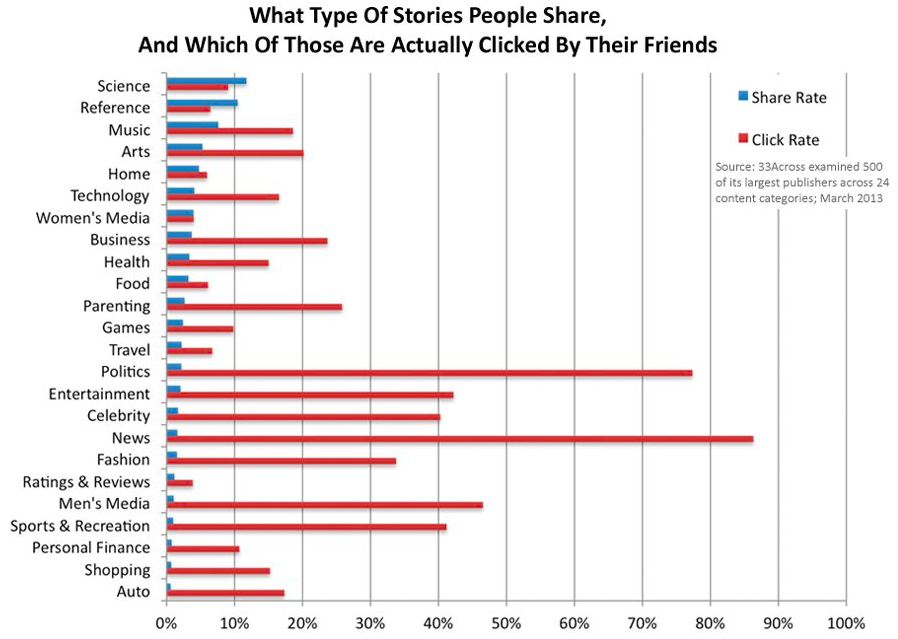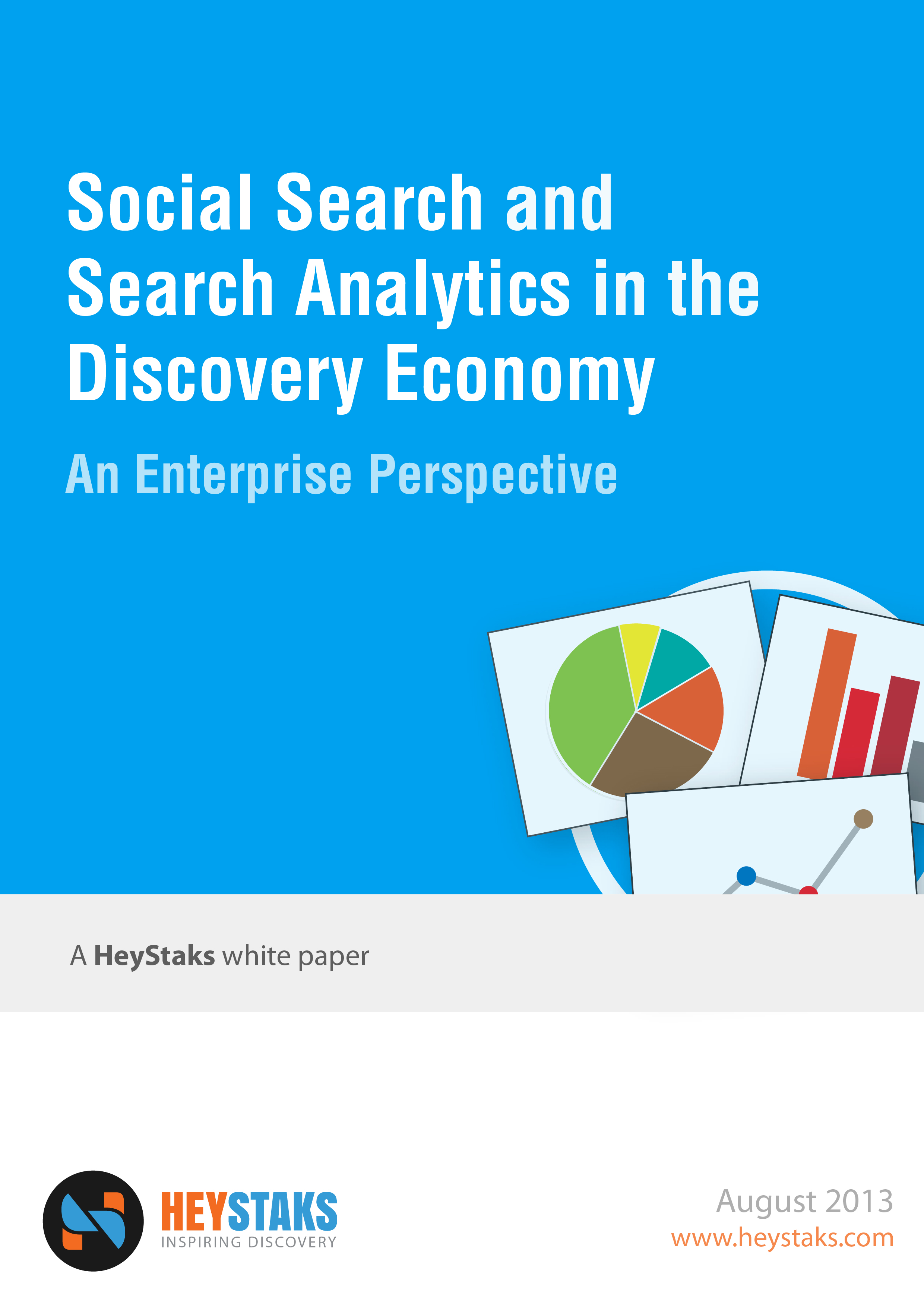In an earlier post, we described how the term “social search” can be roughly translated to mean “searching the social Web” for many of the offerings out there. We argued that social search can be thought of as a process, not just another source of results. Also, the differing intents behind sharing on social networks and searching may result in lower relevance when using social posts as search result recommendations. Here we will discuss how the social Web – although undoubtedly a useful source of relevant results for searching – may not cover the gamut of peoples’ searching interests and that the motivations behind posts on social media sites may limit their usefulness as a reliable source of search recommendations.
Sharing is only partly caring
The psychology of sharing has been well studied in recent times, with many motivations identified as to why people choose to post things to social media. Altruism, self-promotion, validation, relationship-building; all feature across various studies, as does building thought leadership or authority, image- or brand-construction. Even altruism itself can be viewed as self-serving, though studies have shown that humans may possess an “altruism instinct“.




